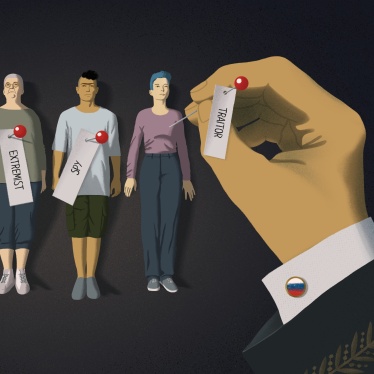When talking about Iranian asylum seekers, activists should be careful not to play the Home Office's game
Anyone who has spent, as I have, long hours over two years listening to Iranian tales of torture would know just how the controversy over Mehdi Kazemi's asylum claim misses the point.
George Galloway says gays are not executed in Iran, just rapists. Peter Tatchell says Galloway spouts "Iranian propaganda". Neither gets at the gist of Mehdi's case, or of Britain's broken obligations with regard to torture under international law.
Let's start with the facts.
Homosexual conduct in Iran can get you the death penalty. Penetrative sex acts between men can bring death on the first conviction; non-penetrative activity, up to 100 lashes. Women earn floggings on the first three convictions; four strikes and you die.
Iran's penal code requires four reiterated confessions, or the eyewitness testimony of four "righteous men", to prove lavat, or sodomy. Yet judges are allowed to guess and infer. Moreover, police helpfully provide the witnesses: raiding a party in Isfahan in May 2007, they brought along four men, presumably righteous, to watch.
Torturing and killing gays is legal in Iran: you don't need to view the bodies to prove it. International law bars Britain from returning people to the risk of torture. Britain must give gay Iranians asylum.
Yet despite this clarity, confusion hangs over the situation in Iran. Some activists, trying sincerely to help Mehdi, are helping the British government off the hook.
Peter Tatchell is wrong to assert, without real evidence, that gay men are routinely hanged in public; that mass "pogroms" have led to mass executions in recent years; or that fake rape charges are regularly tacked on to charges of consensual homosexual acts. Nor should anyone's asylum case hinge on such claims. The last documented death sentences for consensual homosexual conduct in Iran were handed down in March 2005. It is not known whether they were carried out. Ramping up the allegations means accepting the government's exaggerated standards of proof. And it can backfire - against people in Iran.
Europe and the US have seen a public campaign in recent years to identify executions - often random ones - in Iran as killings of gay men. Pictures of the horrific public hanging in Mashhad in 2005 of Ayaz Marhoni and Mahmoud Asgari - convicted, in all likelihood, of the rape of a 13-year-old boy while both were minors - spread virally round the world like a postmodern Pieta. Monstrous, yes: but there is no conclusive evidence that they were gay or that consensual homosexual acts had anything to do with their judicial killing.
In the months after that, campaigners in the US and Europe repeatedly claimed, without evidence, that hangings for rape in Iran were actually a "pogrom" against gay men. One US paper claimed four men were hanged for "being gay". They turned out to have been convicted of the rape of a woman and three girls - 10, 7, and 8 years old.
Such mistakes can have dire consequences. In November 2007 in Kermanshah, Makwan Mouloudzadeh, 20, faced the death penalty on false charges of raping several boys seven years before. His accusers retracted their claims. No evidence suggested he had committed any crime under Iranian law.
However, European activists wildly seized on him as another "gay" victim. They organised a mass petition to Ahmadinejad for mercy for "the young Iranian gay". Their pleas sent an inadvertent message: Makwan was innocent of one capital crime, but Europe believed him guilty of another. On December 5, Makwan Mouloudzadeh, probably neither gay nor a rapist, went to the gallows.
Why so much confusion? Why the need to find "gay" victims, even when it endangers a man already on death row?
Emotion makes discussion difficult. People asking what the evidence really is are likely to be called "apologists for Iran". Britain's slammed asylum door indeed breeds desperation. It's crucial to remember, though, that the reason asylum authorities seek pretexts to reject gay Muslims isn't "Iranian propaganda": it's home-grown propaganda stoking fears of Muslim immigration. Activists must combat racism in Britain, not just repression in Iran.
The most cogent answer, though, shows the failure at the heart of Britain's policies on asylum - and torture. Home Office minister Lord West said of Mehdi: "We are not aware of any individual who has been executed in Iran in recent years solely on the grounds of homosexuality. And we don't consider there was systematic persecution of gay men in Iran."
In other words: no execution, no persecution. If you aren't dead, you're OK. This is a disastrous evasion of the UK's responsibilities under international law.
Human Rights Watch has shown how Britain tries to redefine its obligations on torture, so it can send people back to states where they face grave risk. Usually it happens in the context of counterterrorism. But with gay Iranians, too, the government aims to change the rules, denying that legal torture is "persecution".
The UK should recognise - as the Netherlands has done - that with a law prescribing death or torture for gay Iranians, they need not demonstrate the details of past persecution. Lift the burden of proof from Mehdi and his gay compatriots. End the threat of deportation.
Activists, though, must avoid playing the government's torturous game. Don't let the Home Office define torture down till a corpse on a gallows is the only proof that counts. Hold Britain to its real obligations. Otherwise, it will remain complicit in persecution.








